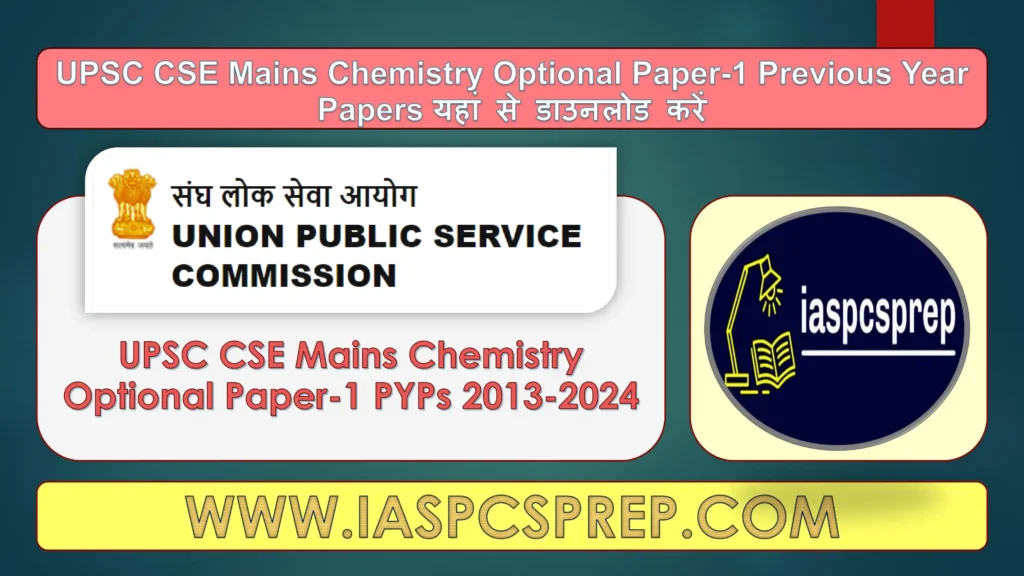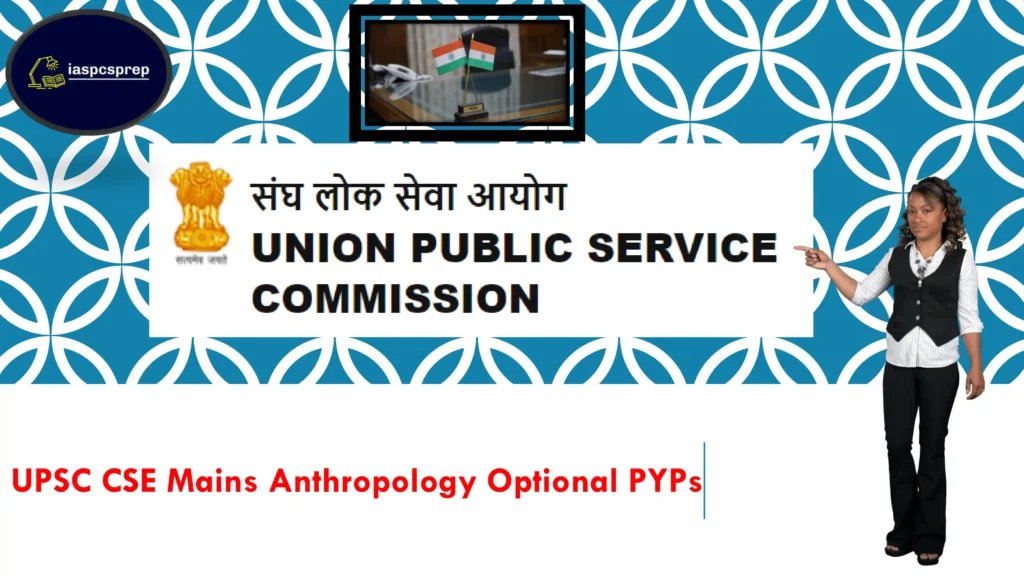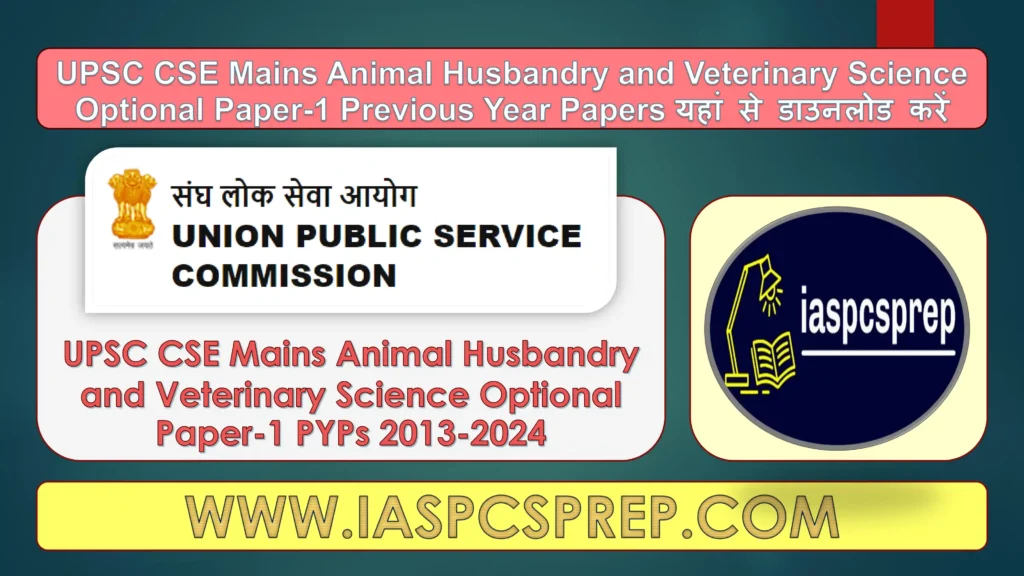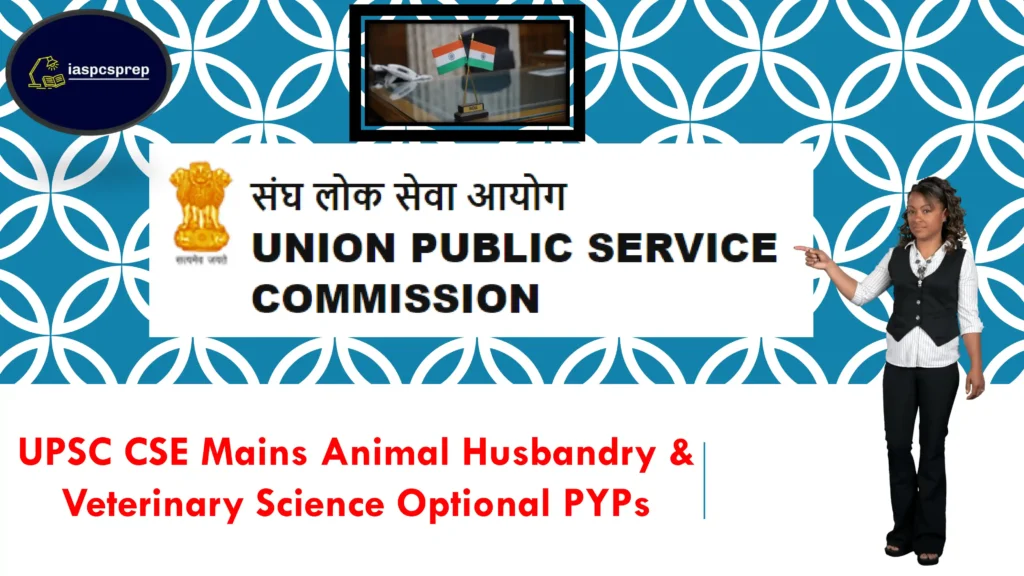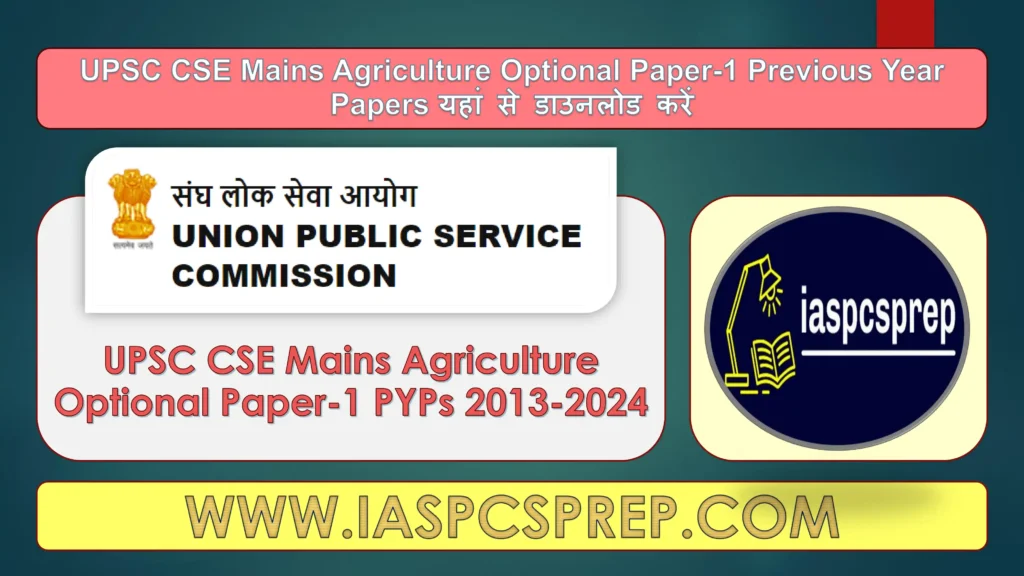UPSC Mains Civil Engineering Optional Paper-1 PYPs
The UPSC Civil Services Examination (CSE) offers Civil Engineering as an optional subject for candidates with a background or interest in the field. Civil Engineering Optional Paper-1 is a part of the Mains examination and covers various fundamental and advanced topics in civil engineering.
Here’s an overview of UPSC CSE Civil Engineering Optional Paper-1:
1). Scope and Syllabus:
- Civil Engineering Optional Paper-1 encompasses a broad spectrum of topics ranging from basic principles to specialized areas within civil engineering.
- The syllabus typically includes topics such as Structural Engineering, Building Materials, Construction Management, Surveying, and Fluid Mechanics.
2). Significance in UPSC CSE Preparation:
- Civil Engineering Optional Paper-1 allows candidates with a background in civil engineering to showcase their knowledge and expertise in the field.
- It offers an opportunity for candidates to demonstrate their understanding of key concepts and principles, as well as their ability to apply them to real-world scenarios.
3). Preparation Strategy:
- Understand the Syllabus: Familiarize yourself with the detailed syllabus to identify key topics and areas of focus for preparation.
- Study Standard Textbooks: Refer to standard textbooks recommended for civil engineering to build a strong conceptual foundation in various subjects.
- Practice Numerical Problems: Civil engineering involves solving numerical problems related to structural analysis, fluid mechanics, and other areas. Practice solving numerical problems to strengthen your problem-solving skills.
- Review Previous Year Papers: Analyze previous year papers to understand the exam pattern, question types, and level of difficulty. This will help in identifying important topics and areas requiring further attention.
4). Resources and References:
- “Civil Engineering: Conventional and Objective Type” by R.S. Khurmi and J.K. Gupta
- “A Textbook of Engineering Mechanics” by R.S. Khurmi
- “Surveying Vol. 1 & 2” by B.C. Punmia
- “Strength of Materials” by R.K. Bansal
- “Fluid Mechanics” by R.K. Bansal
5). Evaluation and Scoring:
- Civil Engineering Optional Paper-1 is evaluated based on the candidate’s understanding of fundamental and advanced concepts in civil engineering, ability to solve numerical problems, and application of theoretical knowledge to practical situations.
- Emphasis is also placed on clarity of concepts, logical reasoning, and the candidate’s capacity to articulate solutions effectively.
In conclusion, Civil Engineering Optional Paper-1 in UPSC CSE provides candidates with a platform to demonstrate their proficiency in various aspects of civil engineering. With thorough preparation and a strategic approach, candidates can excel in this optional subject and enhance their overall performance in the UPSC CSE examination.
UPSC CSE Mains Civil Engineering Optional Paper-1 Previous Year Papers 2013-2024
| Year | Mains Optional Paper-1 PYPs |
| 2013 | Civil Engineering Paper-1 |
| 2014 | Civil Engineering Paper-1 |
| 2015 | Civil Engineering Paper-1 |
| 2016 | Civil Engineering Paper-1 |
| 2017 | Civil Engineering Paper-1 |
| 2018 | Civil Engineering Paper-1 |
| 2019 | Civil Engineering Paper-1 |
| 2020 | Civil Engineering Paper-1 |
| 2021 | Civil Engineering Paper-1 |
| 2022 | Civil Engineering Paper-1 |
| 2023 | Civil Engineering Paper-1 |
| 2024 | Civil Engineering Paper-1 |
| Some Important Links | |
| UPSC Mains Civil Engineering Optional Paper-1 PYPs 2013-2024 | Click Here |
| UPSC Mains Civil Engineering Optional Paper-1 Syllabus | Click Here |
| If you are satisfied with our website iaspcsprep.com, Please like and share with more people. | |
| Subscribe our YouTube Channel | Subscribe Now |
| Follow on Instagram | Follow Now |
| Follow on Facebook | Follow Now |
| Join Telegram | Join Now |
| Join WhatsApp Group for PDF | Join Now |
| For any Query and Feedback, Contact Us at – study@iaspcsprep.com | |

| FAQ – UPSC Mains Civil Engineering Optional Paper-1 PYPs |
| Q. What are UPSC Mains Civil Engineering Optional Paper-1 Previous Year Papers (PYPs)? Ans. UPSC Mains Civil Engineering Optional Paper-1 Previous Year Papers refer to the question papers from past years’ UPSC Civil Services Mains examinations for the Civil Engineering optional subject Paper-1. Q. Why are UPSC Mains Civil Engineering Optional Paper-1 PYPs important for preparation? Ans. Previous year papers help candidates understand the exam pattern, question types, and the level of difficulty of questions asked in Civil Engineering optional Paper-1. They also provide insight into the topics frequently tested by UPSC. Q. Where can I find UPSC Mains Civil Engineering Optional Paper-1 PYPs? Ans. UPSC Mains Civil Engineering Optional Paper-1 Previous Year Papers can be found on various online platforms, UPSC preparation websites, and in books specifically designed for UPSC exam preparation. Q. How can I use UPSC Mains Civil Engineering Optional Paper-1 PYPs effectively in my preparation? Ans. Candidates can use previous year papers to practice answering questions, test their knowledge and understanding of the syllabus, identify weak areas for improvement, and assess their exam preparedness. Q. Are there any specific topics or areas I should focus on while studying UPSC Mains Civil Engineering Optional Paper-1 PYPs? Ans. Candidates should focus on all the topics mentioned in the Civil Engineering optional Paper-1 syllabus. However, they may pay special attention to topics that are frequently tested in previous year papers to ensure comprehensive preparation. Q. How recent should the UPSC Mains Civil Engineering Optional Paper-1 PYPs be for effective preparation? Ans. While recent previous year papers are important for understanding current trends, candidates can also benefit from practicing with older papers to gain a comprehensive understanding of the exam pattern over the years. Q. Can solving UPSC Mains Civil Engineering Optional Paper-1 PYPs help in time management during the exam? Ans. Yes, practicing with previous year papers helps candidates improve their time management skills by familiarizing them with the exam duration, distribution of marks, and the time required to answer different types of questions. Q. Should I attempt UPSC Mains Civil Engineering Optional Paper-1 PYPs under timed conditions? Ans. Yes, attempting previous year papers under timed conditions simulates exam-like conditions and helps candidates assess their performance, identify areas of improvement, and refine their exam strategy. Q. Are there any online platforms where I can access UPSC Mains Civil Engineering Optional Paper-1 PYPs for free? Ans. Yes, there are several websites and online forums dedicated to UPSC exam preparation that offer UPSC Mains Civil Engineering Optional Paper-1 Previous Year Papers for free download or online practice. Q. Can solving UPSC Mains Civil Engineering Optional Paper-1 PYPs alone guarantee success in the exam? Ans. While practicing with previous year papers is an important part of exam preparation, candidates should also focus on understanding concepts, revising the syllabus, and staying updated with current affairs to maximize their chances of success. Q. Can candidates use UPSC Mains Civil Engineering Optional Paper-1 PYPs to anticipate potential challenges in the actual exam, and how should they prepare for them? Ans. Yes, by reviewing challenges faced by candidates in answering certain questions in the past, aspirants can better prepare for similar situations in the actual examination, refining their problem-solving abilities. Remember, while UPSC Mains Civil Engineering Optional Paper-1 PYPs are valuable, they should be integrated into a comprehensive preparation strategy for optimal performance in the UPSC Civil Services Examination. These FAQs aim to provide guidance on leveraging UPSC Mains Civil Engineering Optional Paper-1 Previous Year Papers effectively as part of your preparation strategy for the UPSC Civil Services Examination. Note:- For any other information or query about UPSC CSE Examination, Please visit the Official Website https://upsc.gov.in. |


Related Posts
- UPSC CSE Mains GS-4 PYPs 2013-2024
- UPSC CSE Mains GS-3 PYPs 2013-2024
- UPSC CSE Mains GS-2 PYPs 2013-2024
- UPSC CSE Mains GS-1 PYPs 2013-2024
- UPSC CSE Mains Paper-1 (Essay) PYPs 2013-2024
[contact-form-7 id=”2f7172e” title=”Contact form 1″]



